'Why should it be a battlefield?' The people protecting the right to have Afro hairstyles

For some people, the topic of hair is a straightforward issue, dealt with in the morning and not dwelt on for the rest of the day.
Others, however, are compelled to think about it much more – often because they are concerned as to how it will be accepted by society.
The Halo Code is a commitment to allow Afro hair to be worn in various natural and traditional styles that 68 schools and 151 workplaces have signed up to since its launch last year.
Aimed at increasing inclusivity in society towards Afro hair, the code was set up by the Halo Collective in response to hair discrimination that it calls a source of “racial injustice with serious consequences for Black people in the UK”.
One young woman who was challenged for wearing her own Afro hair out is Ruby Williams.
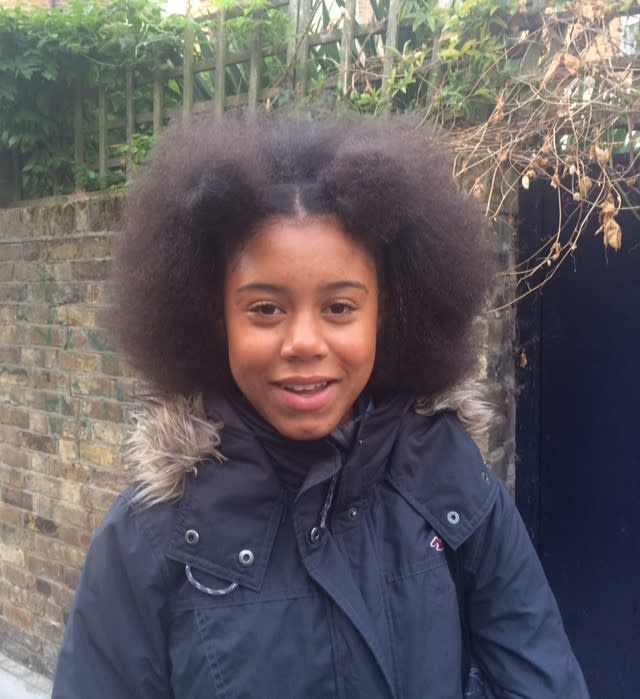
Ruby was 14 when she was first sent home from the Urswick School in Hackney, east London, after teachers said the size of her Afro was not appropriate for school, claiming it blocked other pupils’ view of the whiteboard.
After being repeatedly made to leave school while studying for her GCSEs, Ruby’s family launched a race discrimination claim and – backed by the Equality and Human Rights Commission – won an £8,500 payout in an out-of-court settlement in February 2020.
Ruby, now 19 and a marketing student at the University of Manchester, joined the Halo Collective earlier this year and will be working to spread the word and encourage more schools and workplaces to sign up to the pledge.

She told Yahoo News UK of the campaign: “I liked the fact it was a group of young people who understood the issues around Afro hair discrimination.”
“I'm excited to see where the project goes and I keep an eye on those signing up. There are some huge companies signing the code. I can't see it slowing down now as there is too much momentum behind it.
"It is not acceptable to discriminate against Afro hair and the whole world is now talking about it!”
Watch: Teenager awarded £8,500 payout after Afro hair discrimination
Ruby’s case is not an isolated one.
In 2017, 12-year-old Chikayzea Flanders was told by Fulham Boys School he was not allowed to wear dreadlocks because it was against school uniform policy.
His family took legal action, saying the ban discriminated against their Rastafarian religion, and got it overturned.
At the end of March, students launched protests at the Pimlico Academy, a secondary school in London, at what they said were discriminatory policies on banning hijabs that were “too colourful” and hairstyles that “block the view of others”.
After demonstrations that saw many students walk out of school on the final day of term in March, school principal Daniel Smith backed down and sent a letter to parents promising to revise the ban on hairstyles.
He also agreed to take down a Union Jack flying at the school, saying: “We acknowledge that this symbol is a powerful one which evokes often intense reactions.”
Unrest continued, with the school walls graffitied and the threat of expulsion to protesting students in the weeks since then, much to the concern of some MPs. Smith eventually announced his resignation in mid-May.
'Why should our hair be a battlefield?'
According to the Good Hair Study by the Perception Institute and the Hair Equality Report 2019 by World Afro Day and De Montfort University, 58% of Black students said they had experienced name calling or uncomfortable questions about their hair at school. Furthermore, 46% of parents say their children’s school policy penalised Afro hair.
The study also found that 1 in 5 Black women feel societal pressure to straighten their hair for work.
Michelle De Leon, founder of World Afro Day, has been campaigning for schools to recognise where hair policies may be discriminatory, calling for them to be reversed.
There are also petitions for Afro hair to be included explicitly in the Equality Act 2010 for hair discrimination to be banned.
De Leon says her organisation has approached school leaders, calling for an end to discriminatory policies against hair.
“It was bold, but it was positive and what that has done is open up a dialogue with six education unions”, she said. This includes the National Educational Union, the largest educational union in Europe.
Watch: Michelle De Leon on the Pimlico Academy protests
“We work with them to distribute our information, influence teachers, influence headteachers to get them involved in the work that we’re doing," she said.
She says her team was aware of the situation at the Pimlico Academy last year. De Leon says World Afro Day reported it to the Equality and Human Rights Commission in October.
“Unfortunately, they didn’t do anything about it,” she said.
“We need to keep an eye on that school to see what’s actually going to transpire when the headlines are off, when the media disappears.”
“That’s your natural hair type. Why should our hair be a battlefield?”
But De Leon has an optimistic view of the future as more and more companies and schools adopt the Halo Code: "Change is happening, and that’s a really good thing.
"The people who don't want to see change are just going to become really obvious and the rest of us will just go on without them."
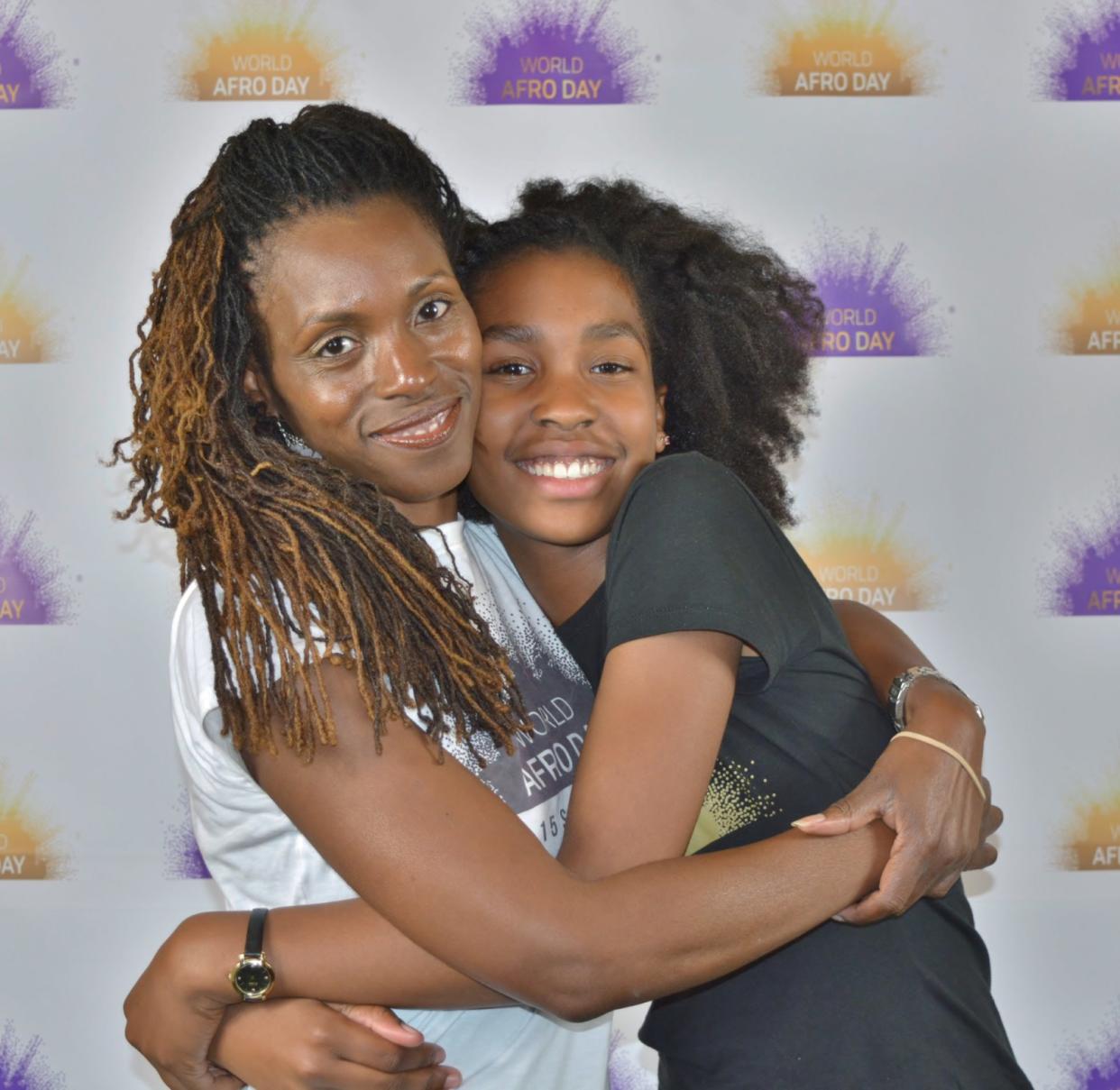
Ruby described the action taken by students at Pimlico Academy as "brilliant", saying: “I'm so impressed by the pupils and how they have worked together to stand up for their rights.
"It's brilliant that so many teachers have also supported them. It did remind me of how alone I felt in my fight though and that still hurts to be honest.
"Why didn't my teachers protect me? We need teachers to become brave about this and persistently challenge discriminatory policies.
“I'm also concerned with the growing narrative about uniform standards and the fact there are so many school leaders who want to police the hair that grows out of pupils' heads.
"They need to learn about their public duty regarding the Equality Act 2010 as this is not OK.”
Ruby’s mother Kate said: “Speaking as a teacher; I think leaders need to realise that schools belong to communities, not a few ambitious professionals.
"Leaders need to consult and listen to the pupils and families they serve. We are paid to be in loco parentis.
"We should always be putting our pupils' welfare first and not just undertaking disingenuous tick boxing exercises.”

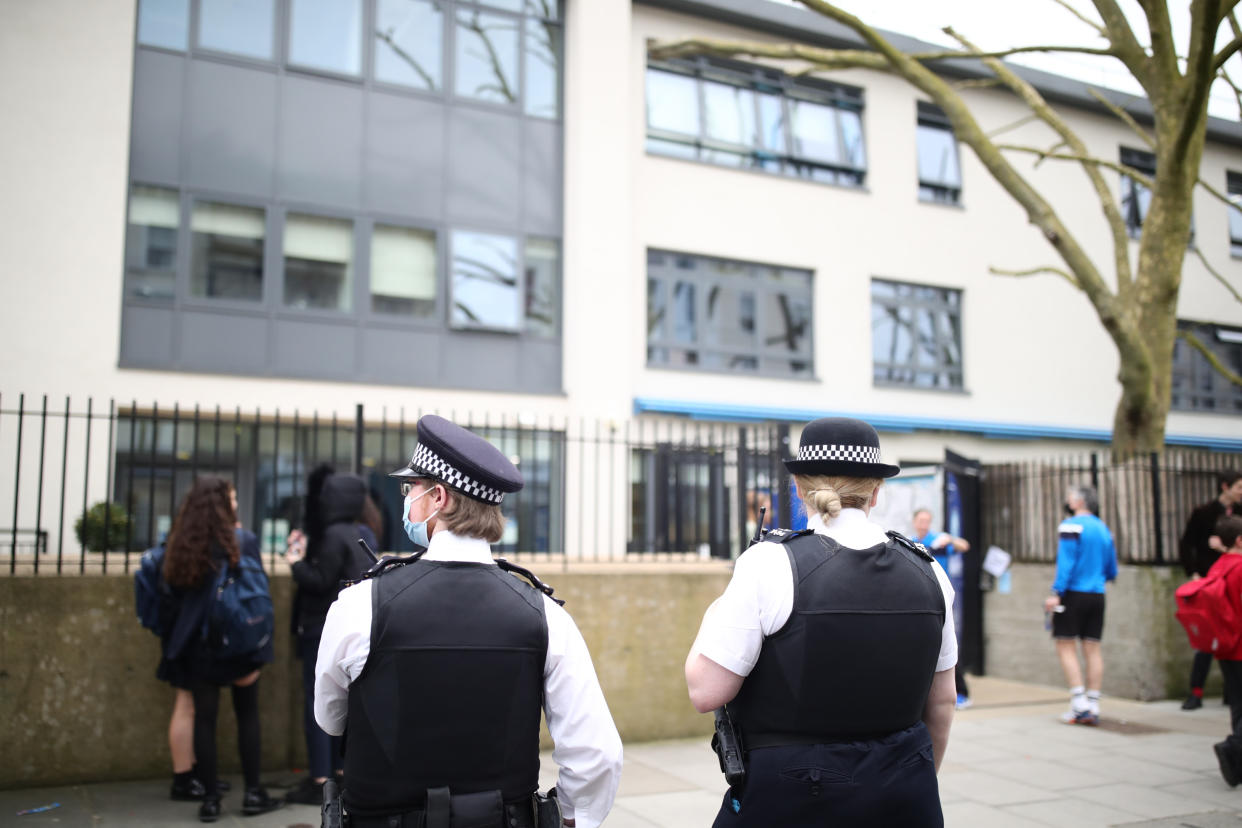
Increased adoption of the Halo Code
The number of schools and businesses seeking to be more inclusive – and using the Halo Code as a way to do so – is increasing steadily.
In December, Sutton High School – where 6% of students have Afro hair – became the first school in the UK to adopt it.
Headteacher Beth Dawson told South West Londoner that the decision was centred on allowing students from different backgrounds to "celebrate their individuality".
She said: "We felt that having a uniform policy that supported them to do that, specifically to celebrate their cultural heritage through their hair, is a positive thing to do."
"Although our uniform code didn’t prevent any type of hairstyle beforehand, what Halo Code is about is actively celebrating it – holding events and having assemblies about Black hair which we’ve done and we’ve had and will continue to have.
"It’s about the girls seeing themselves represented at the school. It’s about us as a school celebrating how diverse we are."
She said the students responded “really positively” to the introduction of the code.
Most recently, Norwich High School for Girls adopted the code.
In a statement, staff at the school told Yahoo News UK that it was "very exciting".
Adopting the Halo Code came from a wider discussion originating from the school's Diversity, Inclusion and Education student and staff group, formed at the beginning of this year, and the school officially signed up just before the Easter break.
The school said the move was part of a wider charter aimed at greater inclusion and that the Halo Code is "a perfect example of how to work towards this".
Carly Gorton, a student at the school, said: "It makes me feel very happy. The school is proud of Afro hair and respects Afro hair, and with diversity and equality it's good to have that in place."
Her mother Anna Mudeka said: "We are so pleased with the news."
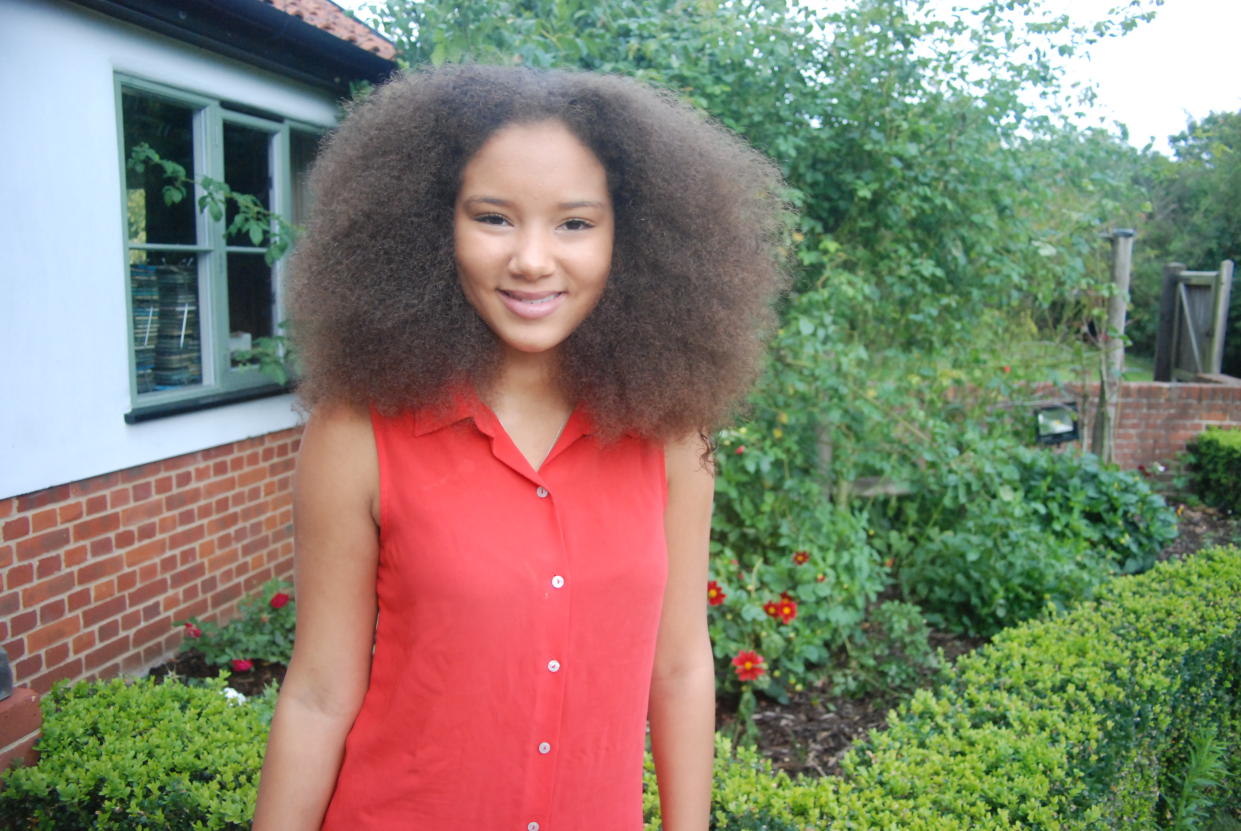

In February, Bristol Brunel Academy also adopted the Halo Code, with assistant principal Abbi Bainton saying it was a "positive recognition of our inclusive ethos" and that "no Black staff or students should have to change their natural or protective hairstyle in order to thrive at school".
Businesses are also taking part.
Unilever was the first company in the UK to adopt it in December, and Mental Health First Aid (MHFA) England adopted the code in January.
Adah Parris, chair of MHFA England, referred to her own experience of being told that her hairstyles were "too ‘exotic’, and that a different hairstyle would make me more ‘representative’ of the workplace".
She said she was "delighted" with the organisation's adoption of the code, highlighting that "legislation is not enough on its own."
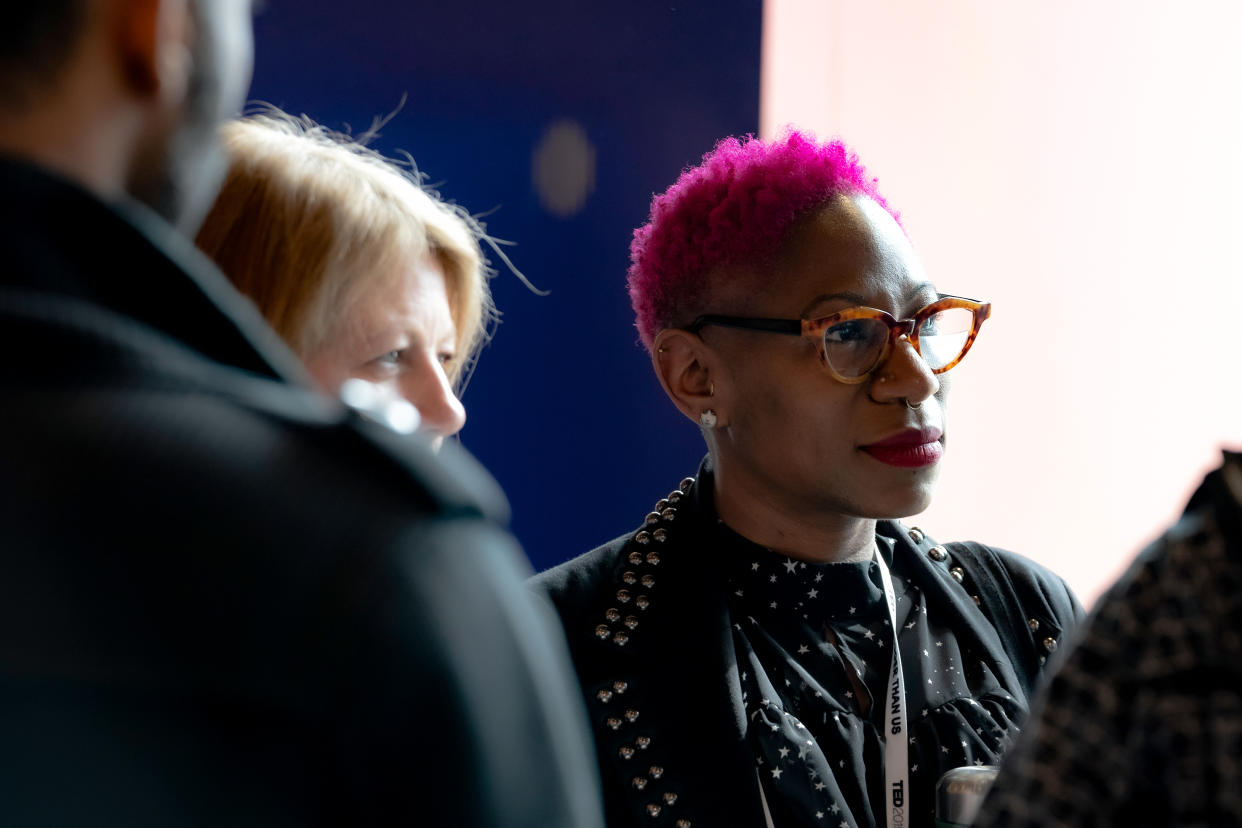
MHFA England chief executive Simon Blake added that employees "should feel comfortable and confident to wear their hair however they want, without fear of prejudice or discrimination".
Magic Circle law firm Linklaters adopted the code in March. David Martin, a global diversity partner for the firm, said individuals should "feel comfortable to bring their whole selves to work" and that Linklaters takes a "stand against all forms of racism and discrimination".



